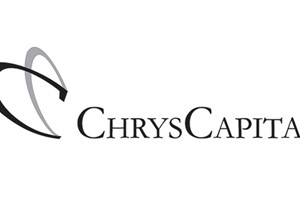Continued progress and successful implementation of EHR systems depend on collaborative efforts between health regulators, providers, and patients.
The Middle East and Africa (MEA) region is witnessing a surge in demand for healthcare services, prompting governments to invest in state-of-the-art electronic health record systems (EHR).
These systems play a crucial role in providing comprehensive medical documentation that combines crucial patient data, diagnoses, and treatment histories, empowering healthcare professionals with valuable insights for better decision-making and improved patient outcomes.
According to marketresearch.com, the EHR market in MEA is expected to experience substantial growth, with a projected increase from US$183.1 million in 2021 to US$233.7 million by 2028, says Akram Sami Dhaini, Vice President and Marketing Director of Middle East & Africa, Oracle Health.
“With various countries in the region already making significant strides in digital technology adoption, continued progress and successful implementation of EHR systems will depend on collaborative efforts between health regulators, providers, and patients,” he adds.
Enhancing operational and financial sustainability in EHR
In pursuit of improved operational sustainability and cost-effective healthcare delivery, cloud solutions have become indispensable for most healthcare facilities in the MEA region. According to Dhaini, traditional on-premises systems are becoming less common due to their significant upfront capital requirements, ongoing maintenance costs, and difficulty in upgrades, leading to outdated features and processes. Additionally, on-premises systems consume large amounts of power, space, and resources, which could be better utilised to cater to patients and staff needs.
On the other hand, cloud technology offers several advantages, including enhanced IT efficiency, reduced maintenance costs, and the ability to easily adopt new features and address evolving business needs. Moreover, cloud solutions offer virtually unlimited scalability, allowing healthcare organisations to expand their capabilities as their patient and staff populations grow.
Pioneering cloud solutions in the healthcare sector
Dhaini says that Oracle offers a unique and integrated portfolio of cloud business applications, such as Enterprise Resource Planning (ERP), Human Capital Management (HCM), Supply Chain Management (SCM), and healthcare-specific applications like EHRs and patient accounting. “This comprehensive suite of offerings allows Oracle to address multiple challenges effectively and efficiently, setting them apart from vendors that provide only fragmented solutions,” he explains.
He also says that the integration of various cloud solutions enables a common data model, offering greater business insight and intelligence to healthcare organisations. “This empowers clients to be more efficient in staffing, supply management, and treatment decisions, ultimately improving patient outcomes. For example, Oracle's workforce management capabilities enable virtual care teams to access real-time EHR data, ensuring clinicians have the latest information on their patients, regardless of whether they are treating them remotely or at the hospital,” adds Dhaini.
He adds that Oracle is addressing industry challenges holistically by developing a broad portfolio of offerings that span the entire business and healthcare ecosystem. Alongside EHR, Oracle's solutions include human capital management, enterprise resource planning, supply chain management, claims processing, and clinical trials, among others. The seamless integration of these solutions provides a unified data model, enabling healthcare providers to gain valuable insights and make informed decisions.
The focus on providing technology allows clinicians to practice at the top of their licenses results in reduced time spent on data entry and more time dedicated to patient care. This integration also fosters a seamless experience for patients, leading to better overall outcomes.
As technology continues to evolve, the future of healthcare in the MEA region looks promising, with EHRs and cloud solutions leading the way toward improved patient outcomes and efficient healthcare delivery.
By Asma Ali Zain










